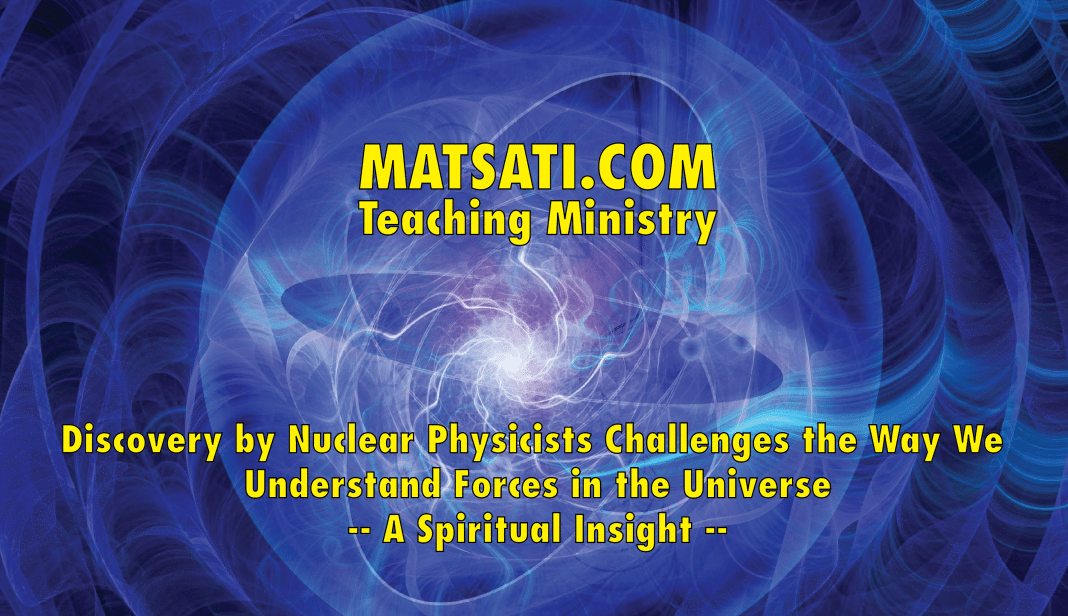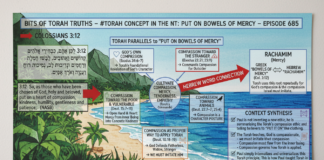Scientists have recently discovered the symmetry that is believed to exist at the core of atoms is not as fundamental as once thought. The breakthrough that was achieved revealed how forces work within the nucleus of atoms. The discovery was published in the journal Nature [1]. The research was conducted by exposing an atomic nucleus to x-ray pulses and then observing how the nuclei change. These experiments are meant to simulate the surface of neutron stars which are the remainder of massive stars at the end of their life. The goal was to better understand how the nuclei of atoms behave in these types of environments. This reveals a natural mechanism for the creation of various chemical elements in the universe.
References
- D. E. M. Hoff, A. M. Rogers, S. M. Wang, P. C. Bender, et.al., Mirror-symmetry violation in bound nuclear ground states, 1 April 2020, Nature. DOI: 10.1038/s41586-020-2123-1, https://doi.org/10.1038/s41586-020-2123-1
The research was conducted at the National Superconducting Cyclotron Laboratory (NSCL) at Michigan State University. Using x-ray pulses, these experiments created exotic atomic nuclei and then measured their properties in order to understand how these elements function to build matter. The standard atomic model consists of electrons orbiting the nucleus. The atomic nucleus is composed of two particles, charged protons and uncharged neutrons. The number of protons within the nucleus determines the type of element the atom is in the periodic table leading to its unique chemical properties. The isotope of an element is defined by the nucleon number, which is the sum of the number of protons and the number of neutrons in the atomic nucleus. The nucleon number is customarily written as a superscript preceding the chemical symbol for the element. For example, 16 O represents oxygen-16, which has 8 protons and 8 neutrons, while 12 C represents carbon-12, with 6 protons and 6 neutrons. These are the most common naturally occurring isotopes of oxygen and carbon, respectively. Some carbon-14 is found in nature. An atom of carbon-14 contains 6 protons and 8 neutrons and is denoted 14 C. Over time, 14 C decays into 12 C.
Working 24/7 over eight days, the researchers created more than 400 strontium-73 nuclei and compared them to the known properties of bromine-73, an isotope that contains 35 protons and 38 neutrons. Bromine-73 nuclei are considered to have similar chemical properties to strontium-73 nuclei. Mirror symmetry in nuclei exists because of the similarities between protons and neutrons which underlies scientists’ theoretical understanding of nuclear physics. The NSCL experiment created the element and the detector sensed its behavior. Studying the radioactive decay of the strontium-73, the researchers observed different behavior as compared to bromine-73. This phenomenon led to more questions regarding the nuclear forces that are at work. The strontium-73 and bromine-73 theoretically should appear identical in structure, but surprisingly they are not. This suggests a symmetry break down, which reveals there is something wrong with our understanding and need to take a closer look at the nuclear forces that are at work. The experiment was repeated in order to gain confidence that the observed phenomenon was in fact real. This research opens up new insights into the structure of rare isotopes, but there remains a lot of work to be done. Plans for more experiments are already underway as the researchers seek to constrain their tests even further to confirm their observations and study the isotopes further.
The Spiritual Insight that we receive from this type of research is related to the theoretical prediction of how these isotopes should behave, and the actual observed phenomenon of a break in symmetry suggesting our understanding is not exactly correct. This is paralleled to the idea of being taught something about the Scriptures, and after having studied the Scriptures we learn that what we have been taught is not exactly correct. This is something that was brought out in the Torah and the Prophets concerning the Torah according to the following Scripture references.
Hosea 6:6
6:6 For I desire mercy, not sacrifice, and acknowledgment of God rather than burnt offerings. (NIV)
6:6 For I delight in loyalty rather than sacrifice, And in the knowledge of God rather than burnt offerings. (NASB)
Isaiah 1:11-13
1:11 ‘What are your multiplied sacrifices to Me?’ Says the Lord. ‘I have had enough of burnt offerings of rams And the fat of fed cattle; And I take no pleasure in the blood of bulls, lambs or goats. 1:12 ‘When you come to appear before Me, Who requires of you this trampling of My courts? 1:13 ‘Bring your worthless offerings no longer, Incense is an abomination to Me. New moon and sabbath, the calling of assemblies I cannot endure iniquity and the solemn assembly. (NASB)
Malachi 1:6-8
1:6 ‘’A son honors his father, and a servant his master. Then if I am a father, where is My honor? And if I am a master, where is My respect?’ says the Lord of hosts to you, O priests who despise My name. But you say, ‘How have we despised Your name?’ 1:7 ‘You are presenting defiled food upon My altar. But you say, ‘How have we defiled You?’ In that you say, ‘The table of the Lord is to be despised.’ 1:8 ‘But when you present the blind for sacrifice, is it not evil? And when you present the lame and sick, is it not evil? Why not offer it to your governor? Would he be pleased with you? Or would he receive you kindly?’ says the Lord of hosts. (NASB)
As we read through the Tanakh, we begin to see how some of the people of Israel were going through the motions of worship, and their hearts were far from God. One section really appears to highlight this point. Reading through Malachi 1:6-14, we see how the people had dishonored God by bringing sick and blind animals for sacrifice. The priests also disobeyed God by allowing this to happen. It seems as if the people thought going through the motions was sufficient to having obeyed the command of God to bring sacrifices. According to the Torah, the people were supposed to be giving God their best (see Vayikra / Leviticus 22:19-20) but instead they were giving the Lord the things they did not want, or could not sell. What these things draw out for us is how the people went through the motions. They believed they could get right with God by going through the motions of keeping the commands. These things reveal to us the significance of intent! If we do not have the right intention our actions can lead to dishonoring God’s Word, and one becoming apathetic in worship. The bringing of animal sacrifices to the temple that were blind, disfigured, or sick was a direct violation of the Torah command (see Vayikra / Leviticus 22:22, Devarim / Deuteronomy 15:21). The reason for this command was that such sacrifices dishonored the Lord as the Lord said, “Do not profane my holy name” (Vayikra / Leviticus 22:32). They were sacrifices in name only; a true sacrifice must not just cost something but must also be from the correct intent. This is what Paul was writing about in Romans 14 on food. Paul was not doing away with the command according to Vayikra / Leviticus 11, he was focusing on the significance of intent. These Scriptures state without the correct intent we are sinning before God, and what Paul points out if we are not living by faith we are sinning (see Romans 14:23).
The greater context of Malachi speaks to the Scientific research in the sense of the theoretical prediction of how forces in the nuclei of isotopes should behave, and the observed phenomenon showing a break in symmetry suggesting our understanding is not exactly correct. Malachi speaks of a variety of ways in which God’s people dishonored the Lord by their actions. Without faith, we dishonor God by our actions. Even the priests were being neglectful in regards to faith by allowing sacrifices that were unacceptable and in violation of God’s Word. Today, many people are at the same risk through the principle of just attending a service, singing songs, listening to sermons, and giving offerings, and assuming this is the extent of their service to the Lord. The Lord God does need our stuff or our actions, he wants our hearts and our faith and trust in Him. He calls us to believe in His Son Yeshua by faith (Ephesians 2:8-9), recognizing our inability to keep His commands in relation to His perfection (Romans 3:23), and He wants us to share our faith with others! These things present for us the meaning of being fully committed to Him! This is what the Scientific research is drawing out, a different way of understanding the role of the Torah in our lives. Paul speaks of the new covenant and the great promise of God that was spoken of by the prophet Jeremiah. He relates the writing of the Torah on the hearts of men to what Jeremiah and Ezekiel say. “And I will give you a new heart, and a new spirit I will put within you. And I will remove the heart of stone from your flesh and give you a heart of flesh. And I will put my Spirit within you, and cause you to walk in my statutes and be careful to obey my judgements.” (See Ezekiel 36:26-27 כו וְנָתַתִּי לָכֶם לֵב חָדָשׁ וְרוּחַ חֲדָשָׁה אֶתֵּן בְּקִרְבְּכֶם וַהֲסִרֹתִי אֶת-לֵב הָאֶבֶן מִבְּשַֹרְכֶם וְנָתַתִּי לָכֶם לֵב בָּשָֹר: כז וְאֶת-רוּחִי אֶתֵּן בְּקִרְבְּכֶם וְעָשִֹיתִי אֵת אֲשֶׁר-בְּחֻקַּי תֵּלֵכוּ וּמִשְׁפָּטַי תִּשְׁמְרוּ וַעֲשִֹיתֶם: and 11:19-20) Ezekiel speaks of the Lord God Almighty writing His words on our hearts through His Spirit by our faith in Yeshua. (2 Corinthians 3:4). This work of God in our hearts is the promise of the power of God that is given to His people. This is what he said according to 2 Corinthians 3:5-6 stating “not by the letter but of the Spirit. For the letter kills, but the Spirit gives life.” The superiority of the New Covenant which Paul is speaking of is found in the giving of the Holy Spirit of God to each and every one of us who have faith in Yeshua as the Messiah of God. How the Spirit of God empowers us, changes us from the inside out, enables us to overcome sin, these things are describing how we are given the ability to obey God’s commands because God Himself is helping us to do so! It is the Lord who is doing this! This is set up such that “in all things, to God be the glory” as opposed to our ability to overcome on our own. This is how Paul argued the superiority of the New Covenant by contrasting it with the Old Covenant that was written upon stone at Sinai. This is the parallel that we find to the Scientific research in the sense of the theoretical prediction of how forces in the nuclei of isotopes should behave, and the observed phenomenon showing a break in symmetry suggesting our understanding is not exactly correct. Paul is correcting our understanding of the role of the Torah, this thing which the people of Israel had struggled with in relation to having the correct intent as opposed to just going through the motions. Paul explained these things in 2 Corinthians in the context of the Torah saying that Israel could not look upon the face of Moshe due to the glory of God that had shown forth. He says that this covenant was “the ministry of death” (ἡ διακονία τοῦ θανάτου). The reason Paul calls this the ministry of death is because man’s attempt to be obedient to the Torah on his own (i.e. without the indwelling Spirit of God, see 2 Corinthians 3:7 and Romans 10:4) is really futile, we fail again and again! The difference is our trying to make ourselves righteous before God as opposed to seeking God’s help to work in our lives and to be counted righteous by our faith believing in the promises of God (like Abraham) and applying God’s Word to our lives with His help. This is why Paul wrote what he did according to Romans 10:1-13.
Romans 10:1-13 / אל הרומים י
1אַחַי, מִשְׁאֶלֶת לִבִּי וּתְפִלָּתִי לֵאלֹהִים – שֶׁיִּוָּשְׁעוּ. 2אֲנִי מֵעִיד עֲלֵיהֶם שֶׁיֵּשׁ לָהֶם קִנְאָה לֵאלֹהִים, אֲבָל קִנְאָה שֶׁאֵין עִמָּהּ דַּעַת; 3כִּי מֵאַחַר שֶׁלֹּא יָדְעוּ אֶת צִדְקַת הָאֱלֹהִים וְנִסּוּ לְהָקִים צְדָקָה מִשֶּׁלָּהֶם, לֹא נִכְנְעוּ לַצְּדָקָה שֶׁל אֱלֹהִים. 4הֲרֵי הַמָּשִׁיחַ הוּא תַּכְלִית הַתּוֹרָה, כְּדֵי שֶׁיֻּצְדַּק כָּל מִי שֶׁמַּאֲמִין.
5מֺשֶׁה אָמְנָם כָּתַב עַל הַצְּדָקָה שֶׁמִּתּוֹךְ הַתּוֹרָה “אֲשֶׁר יַעֲשֶׂה אֺתָם הָאָדָם וָחַי בָּהֶם.” 6אַךְ כָּךְ אוֹמֶרֶת הַצְּדָקָה שֶׁמִּתּוֹךְ אֱמוּנָה: “אַל־תֺּאמַר בִּלְבָבְךָ מִי יַעֲלֶה הַשָּׁמַיְמָה?” זֺאת, כְּדֵי לְהוֹרִיד אֶת הַמָּשִׁיחַ. 7אוֹ “מִי יֵרֵד לַתְּהוֹם?” זֺאת, כְּדֵי לְהַעֲלוֹת אֶת הַמָּשִׁיחַ מִן הַמֵּתִים. 8אֲבָל מַה הִיא אוֹמֶרֶת? “כִּי־קָרוֹב אֵלֶיךָ הַדָּבָר, בְּפִיךָ וּבִלְבָבְךָ.” זֶהוּ דְּבַר הָאֱמוּנָה שֶׁאָנוּ מְבַשְּׂרִים. 9וְאִם אַתָּה מוֹדֶה בְּפִיךָ שֶׁיֵּשׁוּעַ הוּא הָאָדוֹן וּמַאֲמִין בִּלְבָבְךָ שֶׁאֱלֹהִים הֵקִים אוֹתוֹ מִן הַמֵּתִים – גתִּוָּשַׁע. 10הֲרֵי בְּלִבּוֹ מַאֲמִין אִישׁ וְיֻצְדַּק, וּבְפִיו יוֹדֶה וְיִוָּשַׁע. 11וְהַכָּתוּב אוֹמֵר: “כָּל הַמַּאֲמִין בּוֹ לֹא יֵבוֹשׁ.” 12אֵין הֶבְדֵּל בָּזֶה בֵּין יְהוּדִי לְלֹא־יְהוּדִי, כִּי אָדוֹן אֶחָד לְכֻלָּם וְרַב חֶסֶד הוּא לְכָל הַקּוֹרְאִים אֵלָיו, 13שֶׁכֵּן “כֺּל אֲשֶׁר־יִקְרָא בְּשֵׁם יהוה יִמָּלֵט.”
10:1 Brethren, my heart’s desire and my prayer to God for them is for their salvation. 10:2 For I testify about them that they have a zeal for God, but not in accordance with knowledge. 10:3 For not knowing about God’s righteousness and seeking to establish their own, they did not subject themselves to the righteousness of God. 10:4 For Christ is the end of the law for righteousness to everyone who believes. 10:5 For Moses writes that the man who practices the righteousness which is based on law shall live by that righteousness. 10:6 But the righteousness based on faith speaks as follows: ‘Do not say in your heart, ‘Who will ascend into heaven?’ (that is, to bring Christ down), 10:7 or ‘Who will descend into the abyss?’ (that is, to bring Christ up from the dead).’ 10:8 But what does it say? ‘The word is near you, in your mouth and in your heart’ that is, the word of faith which we are preaching, 10:9 that if you confess with your mouth Jesus as Lord, and believe in your heart that God raised Him from the dead, you will be saved; 10:10 for with the heart a person believes, resulting in righteousness, and with the mouth he confesses, resulting in salvation. 10:11 For the Scripture says, ‘Whoever believes in Him will not be disappointed.’ 10:12 For there is no distinction between Jew and Greek; for the same Lord is Lord of all, abounding in riches for all who call on Him; 10:13 for ‘Whoever will call on the name of the Lord will be saved.’ (NASB)
Paul opens in Romans 10 speaking of His heart’s desire and prayer to God is that his people would be saved. He describes their situation saying his people have a jealousy (a zeal) for God but this zeal is not in knowledge. This knowledge he speaks of is pertaining to righteousness, that they do not know the righteousness of God. They only have a righteousness that they establish for themselves and are not submitting to the righteousness of God. This again speaks to intention, do we have the correct intention when serving God? Are our actions coupled to faith? Paul then gives us the key verse, Romans 10:4, הֲרֵי הַמָּשִׁיחַ הוּא תַּכְלִית הַתּוֹרָה, כְּדֵי שֶׁיֻּצְדַּק כָּל מִי שֶׁמַּאֲמִין. Here the word תַּכְלִית meaning “purpose” is used to translate the Greek word telos (τέλος). Paul’s heart desire is that his people would understand the righteousness of God, and states that the purpose of the Torah is the Messiah and clarifies what he means saying “in order that righteousness is to all who believe.” So what Paul is saying here is concerning righteousness that is by faith. He then goes on to further explain what he means. He says “Moshe truly wrote about righteousness that is in the midst of the Torah” (מֺשֶׁה אָמְנָם כָּתַב עַל הַצְּדָקָה שֶׁמִּתּוֹךְ הַתּוֹרָה) and quotes from the Torah saying, “אֲשֶׁר יַעֲשֶׂה אֺתָם הָאָדָם וָחַי בָּהֶם.” saying “that he who does them will live by them.” Then Paul writes in a strange way saying, מִי יַעֲלֶה הַשָּׁמַיְמָה?” זֺאת, כְּדֵי לְהוֹרִיד אֶת הַמָּשִׁיחַ. “who will ascend to heaven? This in order to bring down the Messiah” and then אוֹ “מִי יֵרֵד לַתְּהוֹם?” זֺאת, כְּדֵי לְהַעֲלוֹת אֶת הַמָּשִׁיחַ מִן הַמֵּתִים. “or who will descend to the abyss (deep)? this in order to raise up the Messiah from the dead.” The way Paul is arguing his position is in relation to righteousness. He speaks of his people not knowing the righteousness of God, and that they seek their own righteousness, and of how the Messiah is the purpose of the Torah, and how Moshe wrote about the righteousness that is in the midst of the Torah. What Paul is trying to argue is in relation to the righteousness that one makes for himself, as opposed to the righteousness of God. Is one’s own righteousness capable of ascending into heaven to bring down the Messiah or to go into the grave and raise up the Messiah from the dead? NO! Only the righteousness of God is capable of doing these things. We on our own have no power. Only the righteousness of God is powerful, and this comes by faith! The way Paul describes these things is consistent with the Torah and the Prophets, and how one must submit his or her life and all that he or she is unto the Lord, asking the God of Israel into one’s heart, and believing in His Messiah and then living by faith! The greater glory of the New Covenant is in the Torah fulfillment of God dwelling in our midst by His Spirit in our hearts. So Paul speaks of “the ministry of condemnation” and the “ministry of the Spirit” in the sense that the first is by man’s own attempt to keep Torah, and the latter is by God Himself entering into our lives and doing it for us! This is how the Scientific research of the theoretical prediction of how forces in the nuclei of isotopes should behave, and the observed phenomenon showing a break in symmetry draws out or highlights the fact that our understanding is not exactly correct. This is the same thing that was going on in relation to the Torah, what Paul was trying to correct in understanding the role of the Torah in our lives. So when we hear preachers teaching that the Law has ended or passed away, we should ask ourselves, “What exactly does that mean?” This conclusion is derived from the very fact of misunderstanding the purpose of the Torah in our lives, specifically believing that one earned his salvation under the covenant of Moshe. Was this how the people of ancient Israel misunderstood, and as the people in Paul’s day misunderstood the point of the command in the Torah? Note that God did not give the Torah so that one can earn his salvation. Anyone who thinks this way has a bad understanding of the Torah and all of Scripture! Clearly the Scriptures show that this is true! The evidence for the validity of the Torah today is found in the understanding that sin is still sin which is defined to be disobedience to God’s commands. This inability to keep the Law directs us to seek out the mercy / grace of God and His Messiah. This is why Paul wrote that the goal or purpose of the Torah is the Messiah. (Romans 10:4) Paul’s letters speak at length to the importance of believing upon the Messiah and by doing so, receiving the Holy Spirit of God who empowers us to overcome sin in our lives. The overcoming is a work of God and is not something to be credited to ourselves! This is why Paul speaks of “the glory of the Old Covenant is as it had no glory when compared to the unsurpassed glory of the New Covenant.” (2 Corinthians 3:10) Because God Himself is entering into the lives of His people and empowering us to overcome the world! This is the power of God in our lives!









